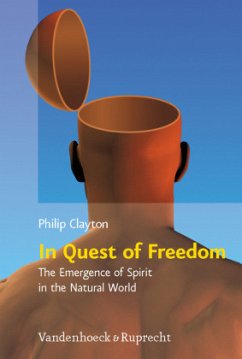Do the advances in the neurosciences force us to take leave or at least radically revise our previous philosophical and theological notions of the freedom and responsibility of human beings? Do the research results demand adoption of a strict determinism - or would that represent a misinterpretation of the empirical data? What can modern theology contribute to this discussion by addressing the affective basis of religious beliefs?During the summer semester 2006 Philip Clayton held six lectures that were part of the first series of Frankfurt Templeton Lectures on the theme "Does Matter Rule the Mind? The Neurosciences and Free Will". This volume contains the manuscripts of those lectures in slightly revised form. They appeared in German in 2007, and these are the English versions thereof.
Hinweis: Dieser Artikel kann nur an eine deutsche Lieferadresse ausgeliefert werden.
Hinweis: Dieser Artikel kann nur an eine deutsche Lieferadresse ausgeliefert werden.








